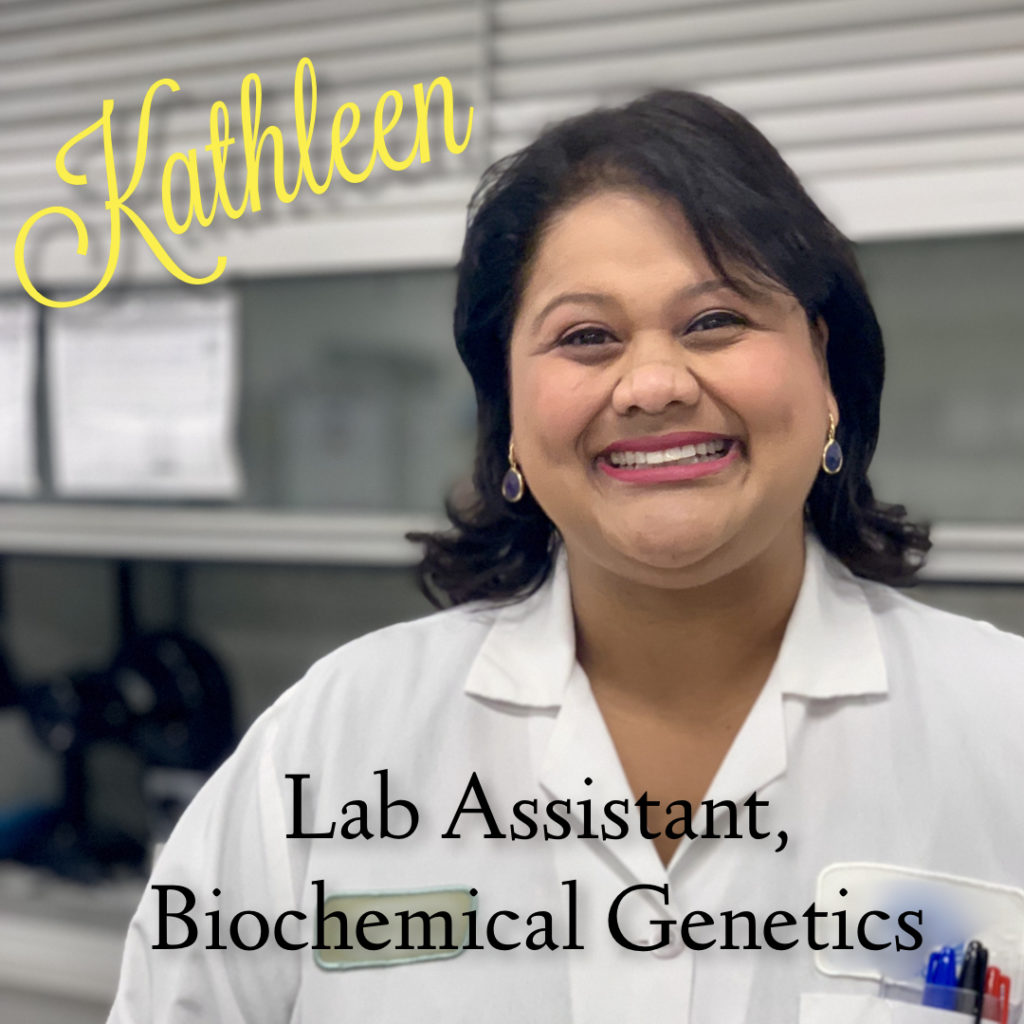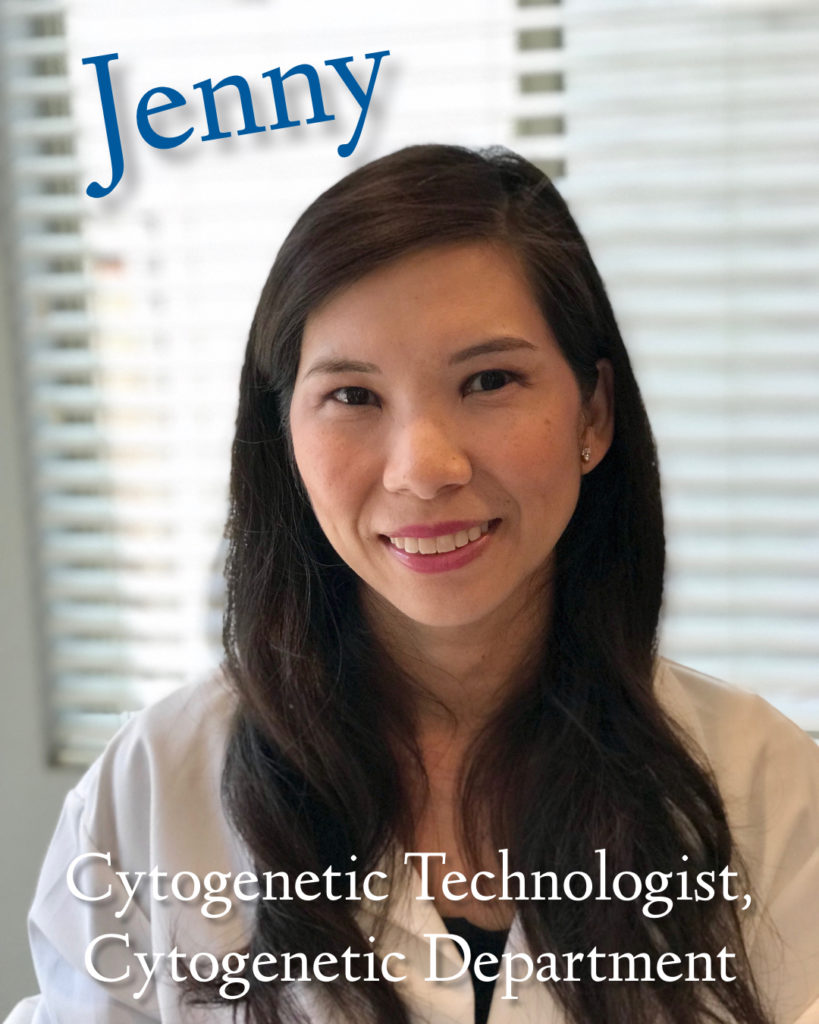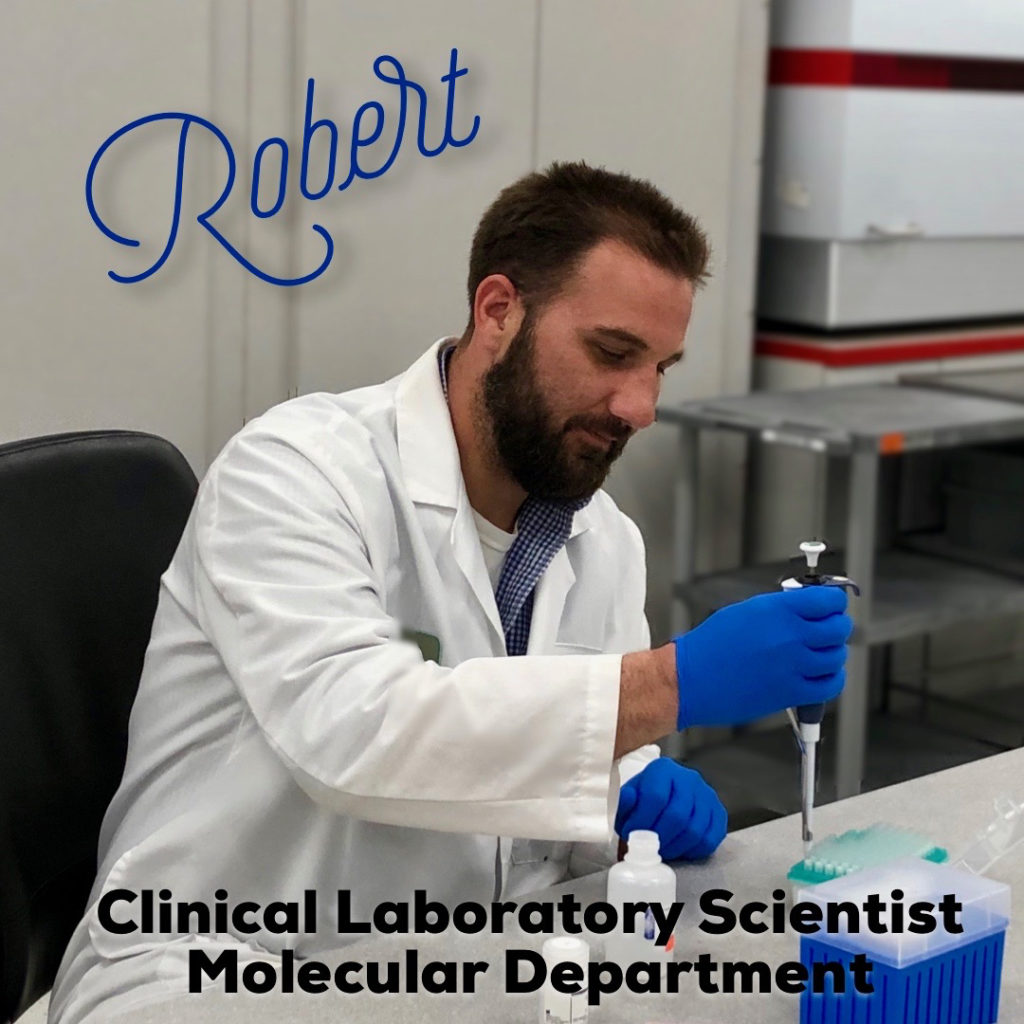Medical Genetics Awareness Week
This week was the first annual Medical Genetics Awareness Week. The colleagues in our field include medical geneticists, genetic counselors, laboratory geneticists, and more. I’m fortunate to work with many of these professionals to help patients and families who have or are at risk of genetic conditions.
I decided to spend some time this week highlighting some of the people I work with in our medical genetic laboratory. I’ve written before about genetic counselors and clinical geneticists, but there are so many more people in our Genetics Community who we depend on in order to provide great patient care.
Our Lab
The clinical laboratory where I work performs three main types of genetic testing- Cytogenetic, Molecular and Biochemical.
Cytogenetic testing has to do with DNA we can see under the microscope. This includes looking at chromosomes (also called a karyotype) and F.I.S.H. studies (Florescent In Situ Hybridization). These tests allow us to assess the structure of your DNA and check for extra or missing pieces.
Molecular testing involves reading the genetic code. Most of our molecular tests check for specific mutations in genes that are known to cause common genetic conditions.
Biochemical tests don’t involve checking DNA at all, but still provide very important information. If a gene is not working, it can sometimes cause a chemical change in the body that can be detected in the blood or urine. Some of our biochemical tests are used to screen pregnancies or newborns for certain genetic conditions. Others can be used to diagnose a patient’s condition or monitor their response to treatment.
I’ve asked some of my colleagues from each of these departments to talk to me about their roles in our lab.
Kathleen- Biochemical Genetics

Kathleen is a lab assistant in the biochemical department. She is usually the first person to handle the samples when they are delivered to the lab. Her role is vital as mistakes at the beginning of testing can have a cascade effect on the whole process. Her job involves processing and preparing samples for testing, as well as ensuring the lab is always in tip-top shape. I asked her to share a bit about her role in our genetics community.
Q: What interested you to start working in Genetics?
A: I love to learn new things… I was able I incorporate some of my medical and pharmacy background in this job. The beauty of this field is there is always so much more to learn because the technologies keep getting better and better. It fascinates me on a daily basis how the compounds and pathways in the human body and/or DNA works and evolves, and how what is “missing” in chromosomes which results in abnormalities, but more importantly what we can do to help “fill in the gap” to have the patient live and maintain a normal and healthy life.
Q: What part of your job do you find the most fulfilling?
A: I love the fact of knowing that I’m a small piece in the puzzle of finding a diagnosis or monitoring a patient’s ongoing clinical diagnosis. It is rewarding knowing that I was able to contribute in a small way in helping get the patient to maintain his or her health. My Manager and Technical Director have given me more opportunities to continue and grow. My team encourages me which gives me confidence and pride in my work. I feel blessed to work here in Biochemical Genetics.
Jenny- Cytogenetics

Jenny is a cytogenetic technologist in our Cytogenetics Department. She cultures and processes cells so that she can analyze their chromosomes under the microscope. Testing can be done on many specimen types including blood, bone marrow and prenatal samples. She also prepares cell cultures to be sent to other departments or labs for molecular or biochemical tests. I asked her to tell me how she chose her career, and what she enjoys about it.
Q: What lead you to go into cytogenetics?
A: My dad, who was a supervisor also in Cytogenetics, definitely inspired me into go this field. As a young girl, he brought me to his work during the weekends. I would watch him cut out and pair the chromosomes together. From them on, I knew I wanted to follow my dad’s footsteps which helped guide me into the field of Cytogenetics.
Q: What do you like about your job?
A: What I like most about my job is that it is related to patient care, giving them answers and the proper treatment especially in cancer patients.
Robert- Molecular Genetics

Robert is a Clinical Laboratory Scientist (CLS) in our Molecular Department. Molecular genetic tests can detect small “typos” in the genetic code. Unlike cytogenetic changes, they are far too small to see under a microscope and require special processes and machinery to detect. As a CLS in our lab, Robert is responsible for performing these test procedures and analysis on a variety of different types of samples. He does this by extracting DNA, multiplying a known region of the DNA, and then analyzing that region to find changes that are known to cause genetic conditions. I asked him to tell me a bit about why he became a lab scientist.
Q: Why did you choose to become a CLS?
A: I became a CLS because I’ve always wanted to be in the healthcare field but since I’m sometimes awkward around people I knew I didn’t want to interact with patients. When I was in college I read about the different medical professions and what they do and thought a CLS would be perfect for me because they don’t interact with patients.
Q: What do you enjoy most about your job?
A: What I like most about my job is that I can help provide answers to people about their health.
I’d like to thank Kathleen, Jenny and Robert for letting me feature them this week. Our Medical Genetics Community depends on them every day to provide accurate results to our patients. I hope you had a great Medical Genetics Awareness Week!
